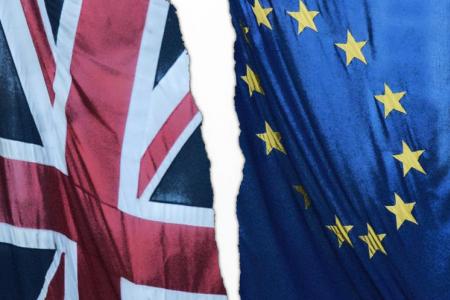Imagination needed to solve Brexit
Both Brussels and Britain need to work harder and think beyond standard options
British Prime Minister Theresa May suffered a devastating defeat on Tuesday on her Brexit deal, losing by 230 votes.
With her Brexit deal potentially dead, and a change of government ever more possible, pressure will also intensify on Brussels to show more political imagination to reach a resolution to the current impasse.
While virtually all EU leaders had said there is no scope for further negotiation on the deal, there could yet be overwhelming incentives for both sides to try to get the withdrawal agreement, or a significantly new version of it, "over the line".
More imagination and flexibility is especially important given that all sides want to avoid a no-deal scenario. This is because forecasts indicate such an outcome could be damaging not just to Britain, but also Ireland and continental Europe alike.
As a Remainer in 2016 who wishes Brussels well and wants to see Britain continue to be in a close, cooperative relationship with the EU-27, it has been painful to watch Mrs May's administration make mistake after mistake.
A different tone in negotiations could have made a difference alongside a coherent negotiating strategy that did not artificially draw so many supposed "red lines" so early.
The EU has not played a faultless game either. This is despite the plaudits it rightfully receives for proving a far more disciplined, effective negotiator than many in London anticipated two years ago.
While Britain's negotiation strategy and vision has been "missing in action", Brussels has also struggled to define what Brexit should mean, partly because this forms part of difficult questions around where the EU is headed.
To be clear, Brussels has offered up numerous opportunities over the last two years to Britain and explained what these are, but there could have been greater willingness to think beyond standard options.
Moreover, in what has been an inherently political negotiation over the withdrawal deal the last two years, the EU has sometimes been legalistic with the process in a way that would have made it hard for any British government, let alone this incompetent one, to deliver.
For instance, the withdrawal deal and the separate one to set up a new relationship are exceptionally hard to be undertaken in isolation, as the Northern Irish border issue underlines.
Lack of imagination by Brussels in Brexit talks potentially stems from initial complacency in some quarters of the EU over the concerns British voters expressed in the referendum, which may have been dismissed too easily in 2016 as British exceptionalism.
However, even French President Emmanuel Macron admitted last year his country might vote for Frexit if a similar referendum were held in his country.
Moreover, some EU decision makers, although initially concerned that Brexit could lead to a domino effect across the continent, have perhaps come to see Britain's departure as a "problem" that may even be positive for the EU, especially in a context where polls in 2016 and 2017 have shown popular support for the EU at record levels across much of the continent.
Now is the time for Brussels, not just London, to redouble Brexit diplomacy to help ensure that a hard, disorderly exit does not come to pass.
Delivering a smoother departure needs clear strategy and thinking on all sides to deliver on a new phase of constructive partnership that can bring benefits for both.
This article appeared in The Business Times yesterday.
Get The New Paper on your phone with the free TNP app. Download from the Apple App Store or Google Play Store now


